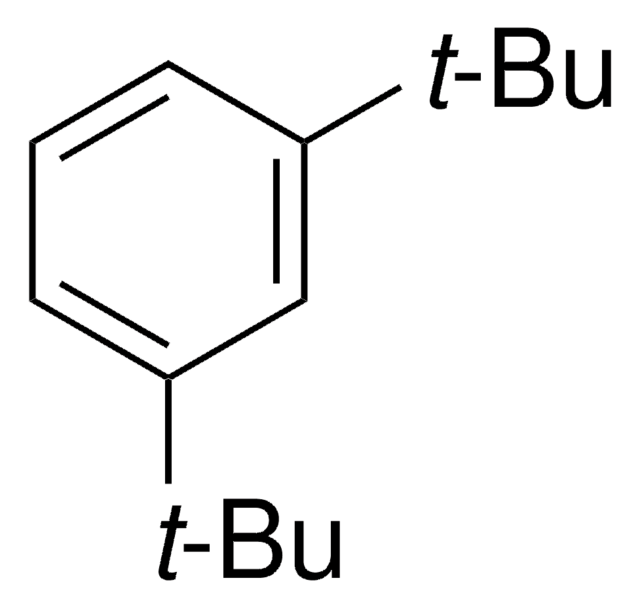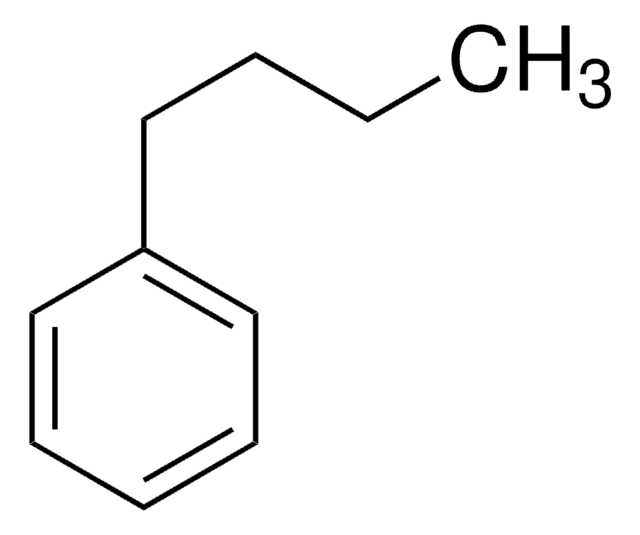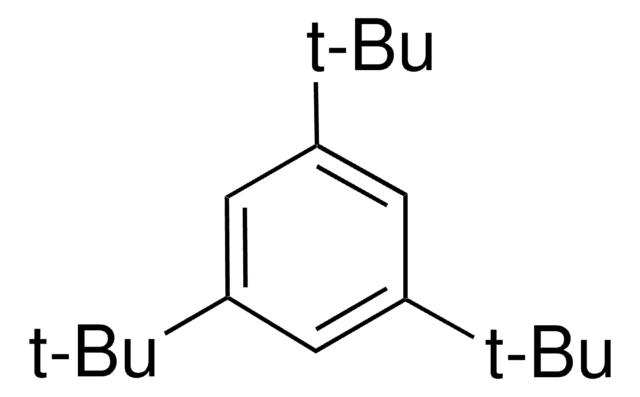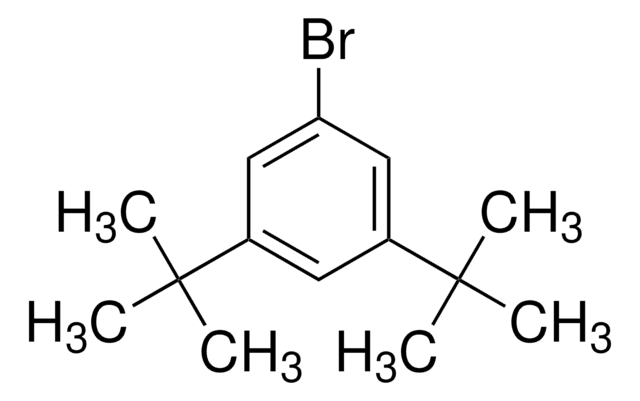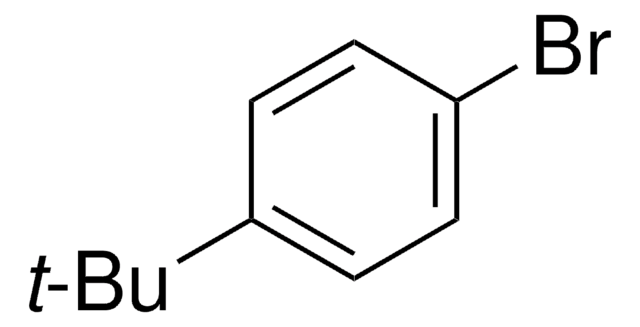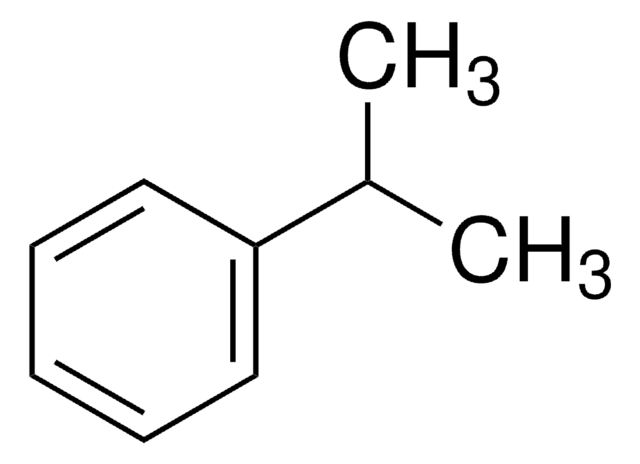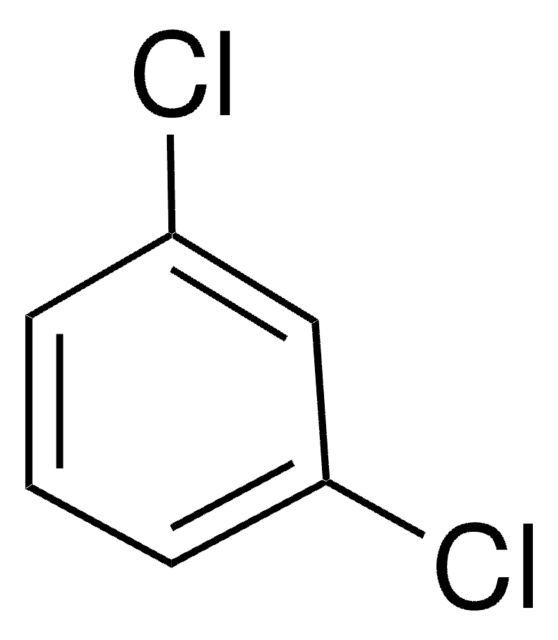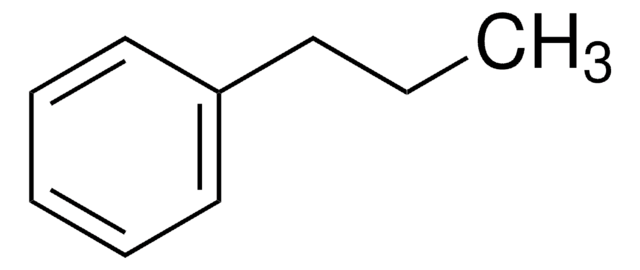B90602
tert-Butylbenzene
99%
Sinónimos:
2-Methyl-2-phenylpropane
About This Item
Productos recomendados
densidad de vapor
3.16 (169 °C, vs air)
Nivel de calidad
presión de vapor
4.79 mmHg ( 37.7 °C)
Ensayo
99%
Formulario
liquid
temp. de autoignición
842 °F
índice de refracción
n20/D 1.492 (lit.)
bp
169 °C (lit.)
mp
−58 °C (lit.)
densidad
0.867 g/mL at 25 °C (lit.)
cadena SMILES
CC(C)(C)c1ccccc1
InChI
1S/C10H14/c1-10(2,3)9-7-5-4-6-8-9/h4-8H,1-3H3
Clave InChI
YTZKOQUCBOVLHL-UHFFFAOYSA-N
¿Está buscando productos similares? Visita Guía de comparación de productos
Categorías relacionadas
Descripción general
Aplicación
- Gas separation applications: tert-Butylbenzene is utilized in the synthesis of aromatic polyimide membranes with covalent crosslinking, enhancing their performance in gas separation processes, which is vital for industrial applications and environmental management (Lozano et al., 2022).
- Enhancement of Raman scattering: The compound serves as a substrate for metal nanoparticles in nanogap-enhanced Raman scattering studies, which is crucial for analytical chemistry, providing sensitive detection methods for various chemicals (Chen et al., 2021).
- Hyperpolarized (13)C probes: It is also pivotal in the rational design of hyperpolarized (13)C probes, enabling significant advancements in magnetic resonance imaging (MRI) techniques, which improve diagnostic imaging capabilities (Sando et al., 2018).
Palabra de señalización
Warning
Frases de peligro
Consejos de prudencia
Clasificaciones de peligro
Flam. Liq. 3 - Skin Irrit. 2
Código de clase de almacenamiento
3 - Flammable liquids
Clase de riesgo para el agua (WGK)
WGK 1
Punto de inflamabilidad (°F)
116.6 °F - closed cup
Punto de inflamabilidad (°C)
47 °C - closed cup
Equipo de protección personal
Eyeshields, Faceshields, Gloves, type ABEK (EN14387) respirator filter
Elija entre una de las versiones más recientes:
¿Ya tiene este producto?
Encuentre la documentación para los productos que ha comprado recientemente en la Biblioteca de documentos.
Protocolos
US EPA Method 8260: GC Analysis of Volatiles on SPB®-624 after Purge & Trap using "K" Trap, Fast GC Analysis
Global Trade Item Number
| Número de referencia del producto (SKU) | GTIN |
|---|---|
| B90602-5ML | 4061838111951 |
| B90602-1L | 4061838129802 |
| B90602-250ML | 4061833443552 |
Nuestro equipo de científicos tiene experiencia en todas las áreas de investigación: Ciencias de la vida, Ciencia de los materiales, Síntesis química, Cromatografía, Analítica y muchas otras.
Póngase en contacto con el Servicio técnico